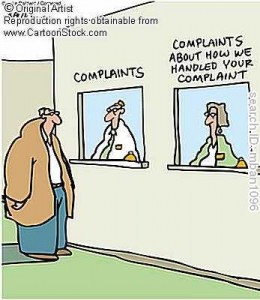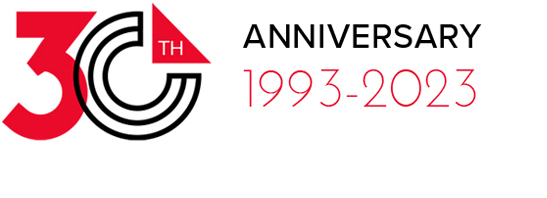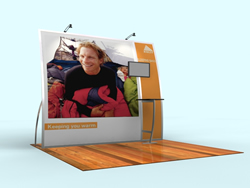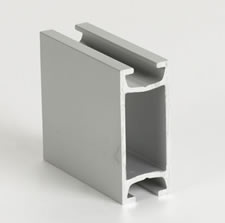This has been on my mind for some time so I am going to share a little more “Seth-Wisdom” with you. Seth Godin that is. Only because he nails this conundrum.
First, the issue. We design, manufacture and sell tradeshow exhibits. We depend on you to find new clients or to work with your existing clients to develop their tradeshow program. But there is, at times, a fly in the ointment or a pink elephant in the room. It’s YOU!
Whether it’s in design, build, or even in the final review, we sometimes find ourselves tweaking and revising the salesperson’s wishes rather than what the customer wants. Especially in design. I am amazed at how many times a designer has participated in a design meeting(s) with the end-user, then comes up with a great design for the client only to have it incessantly revised based upon what the salesperson wants — not what the client wants. And, of course, we make the changes, but 100 percent of the time once the design lands on the client’s desk, we end up changing it back to the original design.
 This is not a complaint . . . but it kinda is. No one questions your wisdom or your knowledge of exhibit marketing gleaned from years and years of working with exhibitors. It’s invaluable. It’s indispensable. Your guidance ensures that your client makes smart decisions about trade show marketing.
This is not a complaint . . . but it kinda is. No one questions your wisdom or your knowledge of exhibit marketing gleaned from years and years of working with exhibitors. It’s invaluable. It’s indispensable. Your guidance ensures that your client makes smart decisions about trade show marketing.
Ours is a specialized business, a knowledge that comes primarily from working with hundreds of clients. However, and far too often, the account executive makes decisions based on their preferences, not their client’s preferences. You hear statements like, “I’m doing this for the client’s best interests.” Which is fine . . . kinda . . . but not when there’s a laundry list of “best interests” that the client never hears about and then discovers at the preview or the show site.
What really impacts the project is when we are in the final staging of an exhibit and then have to make last minute production changes based on what the account executive wanted only to find out later that the client was not expecting the changes. But I digress.
This came from my daily Seth email.
Polishing Perfect
Perfect doesn’t mean flawless. Perfect means it does exactly what I need it to do. A vacation can be perfect even if the nuts on the plane weren’t warmed before serving.
Any project that’s held up in revisions and meetings and general fear-based polishing is the victim of a crime. It’s a crime because you’re stealing that perfect work from a customer who will benefit from it. You’re holding back the good stuff from the people who need it, afraid of what the people who don’t will say.
Stop polishing and ship instead. Polished perfect isn’t better than perfect, it’s merely shinier. And late.
Now I am not saying that we don’t strive to be perfect. We most certainly do! But in the end, our goal is perfection per the end-user’s expectations. Not my expectations. Not the account executives.
If you take exception to my comments, please share your thoughts.
Hope you have big plans this coming week for the 4th of July holiday. Have a great time with your family and friends.
Kevin (not yet perfect) Carty
http://twitter.com/kevin_carty
http://www.linkedin.com/pub/kevin-carty/3/800/32a
[subscribe2]

























